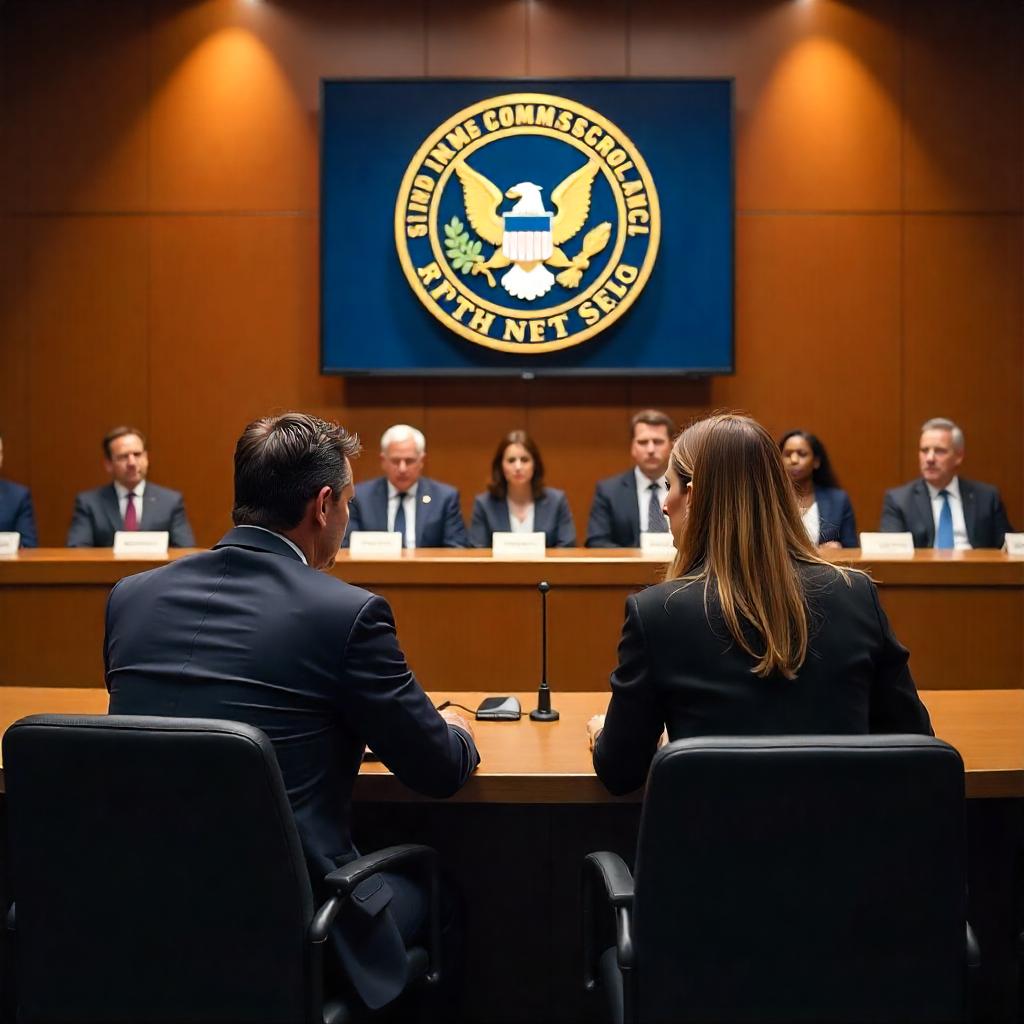Worldcoin ID
In a digital landscape increasingly dominated by artificial intelligence, distinguishing between human users and AI-driven entities has become paramount. Enter Worldcoin—a pioneering initiative co-founded by Sam Altman, CEO of OpenAI, aimed at creating a universal digital identity system. At the heart of this endeavor lies the World ID, a biometric verification platform designed to authenticate human users online.
Worldcoin’s approach is both innovative and ambitious. By leveraging iris-scanning technology through a device known as the Orb, the platform generates a unique cryptographic identifier for each user. This World ID serves as a proof of personhood, ensuring that individuals can verify their humanity without revealing personal information.
The significance of Worldcoin’s World ID extends beyond mere identification. It addresses critical challenges such as bot-driven fraud, fake accounts, and the ethical implications of AI-generated content. As digital interactions become more prevalent, establishing a trustworthy method to confirm human presence online is essential.
This article delves into the intricacies of Worldcoin’s digital identity system, examining its functionality, integration with major platforms, and the broader implications for the crypto ecosystem. Through this exploration, we aim to provide a comprehensive understanding of how Worldcoin is shaping the future of digital identity verification.
What Is Worldcoin ID?
The Orb: Capturing Human Uniqueness
Worldcoin’s World ID is a biometric digital identity system designed to verify human presence online, addressing the challenges posed by artificial intelligence and automated bots. At the core of this system is the Orb, a custom-built device that captures and processes an individual’s iris to create a unique cryptographic identifier.
The Orb utilizes infrared imaging to scan the iris, capturing its intricate patterns. These patterns are unique to each individual and remain consistent throughout life, making them an ideal biometric marker for identity verification. Importantly, the Orb does not store raw images; instead, it processes the data to generate an iris code—a mathematical representation of the iris’s unique features.
Once the iris code is generated, it is transmitted to the user’s device, where it is securely stored. The Orb itself does not retain any personal data, ensuring that sensitive information is not stored on centralized servers. This approach aligns with Worldcoin’s commitment to privacy and data security.
Privacy and Security Measures
Worldcoin has implemented several measures to protect user privacy:
- Personal Custody: Users have control over their biometric data. The information generated during the iris scan is stored locally on the user’s device and is not uploaded to Worldcoin’s servers.
- Zero-Knowledge Proofs (ZKPs): When using World ID, ZKPs are employed to verify identity without revealing personal information. This cryptographic technique ensures that users can prove their humanity without disclosing sensitive data.
- Data Deletion: If a user chooses to “un-verify” their World ID, the associated iris code is permanently deleted after a six-month cooling-off period, providing users with the option to remove their biometric data from the system.
Use Cases of World ID
World ID serves as a digital passport, enabling users to authenticate their identity across various online platforms without the need for traditional login credentials. Its applications include:
- Accessing Decentralized Applications (dApps): Users can log into dApps using their World ID, ensuring that only verified humans can participate.
- Preventing Fraud: By verifying human identity, World ID helps prevent the creation of fake accounts and reduces the risk of automated bots engaging in fraudulent activities.
- Enhancing Security: World ID provides an additional layer of security for online services, ensuring that interactions are conducted by verified individuals.
In summary, Worldcoin’s World ID offers a privacy-focused solution to digital identity verification, leveraging biometric data to confirm human presence online. Its integration of advanced security measures ensures that users’ personal information remains protected, while its applications across various platforms enhance the integrity and security of online interactions.
Integration with Major Crypto Exchanges
Worldcoin’s World ID is rapidly gaining traction as a robust solution for human verification in the digital realm. Its integration with leading cryptocurrency exchanges marks a significant milestone in its adoption, offering users enhanced security and streamlined access to the crypto ecosystem.
Major Exchange Listings
In July 2023, Worldcoin’s native token, WLD, was listed on several prominent cryptocurrency exchanges, including Binance, Bybit, Huobi, OKX, and Gate.io. This widespread listing underscored the market’s confidence in Worldcoin’s innovative approach to digital identity and its potential to reshape online verification processes.
Enhanced User Verification
The integration of World ID with these exchanges allows users to verify their humanity seamlessly during account creation and transaction processes. By utilizing the biometric verification provided by the Orb, exchanges can ensure that accounts are operated by genuine human users, reducing the risk of fraudulent activities and enhancing the overall security of the platform.
Privacy and Data Security
A core tenet of Worldcoin’s philosophy is user privacy. When users authenticate through World ID, their biometric data is processed locally on their devices, ensuring that sensitive information is not stored on centralized servers. This approach aligns with global data protection regulations and addresses concerns related to biometric data handling.
Future Prospects
As the adoption of World ID continues to grow, further integrations with additional platforms and services are anticipated. These developments promise to create a more secure and user-friendly digital environment, where individuals can confidently engage in online activities without compromising their privacy.
In summary, Worldcoin’s strategic partnerships with major cryptocurrency exchanges not only bolster the platform’s credibility but also pave the way for a more secure and efficient digital identity verification system in the crypto space.
Technical Architecture of World ID
Worldcoin’s World ID is built upon a robust technical framework that integrates advanced cryptographic techniques, scalable blockchain infrastructure, and privacy-preserving protocols. This architecture ensures secure, efficient, and anonymous human verification at a global scale.
Blockchain Infrastructure
World ID’s blockchain infrastructure is designed for scalability and efficiency. Initially deployed on Polygon during its beta phase, the current version operates on Ethereum with a highly optimized batching architecture. This system implements state bridges to Optimism and Polygon PoS, with each batch insertion being replicated to these chains. This architecture allows for cost-effective scaling while maintaining the security guarantees of the Ethereum mainnet.
Zero-Knowledge Proofs (ZKPs)
At the core of World ID’s privacy-preserving design are Zero-Knowledge Proofs (ZKPs). A ZKP is a cryptographic method that allows one party to prove to another party that a statement is true without revealing any additional information. In the context of World ID, ZKPs enable users to prove their humanness and uniqueness without disclosing personal data.
World ID employs the Semaphore protocol, which utilizes zk-SNARKs (Zero-Knowledge Succinct Non-Interactive Arguments of Knowledge), to facilitate anonymous group membership proofs. This ensures that users can demonstrate their inclusion in the set of verified humans without revealing their specific identity.
Privacy-Preserving Deduplication
To prevent multiple verifications by the same individual, World ID implements privacy-preserving deduplication. This process verifies that an individual hasn’t previously enrolled without maintaining a centralized database of personal information. It is achieved through a combination of biometric processing and cryptographic protocols, where iris codes are compared using Hamming distance calculations while maintaining strict privacy guarantees through local processing and zero-knowledge proofs.
Batch Processing and Cost Efficiency
Rather than processing each new World ID verification individually, the system aggregates multiple commitments into batches. Each batch update is accompanied by a zero-knowledge proof demonstrating the validity of all insertions, which significantly reduces the per-user cost of verification. The batch prover computes Groth16 proofs with initial root, final root, and insertion start index as public inputs, while keeping the hash of public keys and insertion proofs as private inputs.
Orb Device and Biometric Verification
The Orb is a custom-built biometric device that captures an individual’s iris to create a unique cryptographic identifier. The device processes the biometric data locally, ensuring that sensitive information is not stored on centralized servers. This approach aligns with Worldcoin’s commitment to privacy and data security.
Once the iris code is generated, it is transmitted to the user’s device, where it is securely stored. The World App then facilitates the generation of zero-knowledge proofs, allowing users to prove their identity without revealing personal information.
In summary, World ID’s technical architecture combines advanced cryptographic techniques, scalable blockchain infrastructure, and privacy-preserving protocols to provide a secure and efficient solution for human verification. This robust framework ensures that users can prove their identity while maintaining privacy and security in the digital realm.
Use Cases and Applications of World ID
Worldcoin’s World ID is more than just a digital identity; it serves as a foundational layer for various applications across the digital and decentralized landscape. By providing a secure and privacy-preserving method to verify human identity, World ID addresses challenges such as bot-driven fraud, fake accounts, and the ethical implications of AI-generated content. Its integration into multiple sectors showcases its versatility and potential impact.
Access to Decentralized Finance (DeFi)
World ID facilitates seamless access to decentralized financial platforms by enabling users to prove their humanity without revealing personal information. This capability is crucial in preventing Sybil attacks, where malicious actors create multiple fake identities to manipulate decentralized systems. By ensuring that each participant is a unique human, World ID helps maintain the integrity and fairness of DeFi protocols.
Enhanced Security in Online Services
The integration of World ID into various online platforms enhances security by ensuring that interactions are conducted by verified humans. This is particularly important in sectors like e-commerce, where distinguishing between human users and bots can prevent fraudulent activities such as fake reviews, account takeovers, and unauthorized transactions. Platforms can implement World ID to enforce human-only participation, thereby reducing the risk of fraud and improving user trust.
Combatting Online Fraud and Fake Accounts
World ID’s biometric verification process significantly reduces the creation of fake accounts and fraudulent activities online. By requiring users to undergo a unique iris scan to obtain a World ID, the system ensures that each identity is tied to a real, unique human being. This approach effectively combats issues like spam, bot-driven scams, and identity theft, fostering a more secure and trustworthy online environment.
Facilitating Secure Online Voting
World ID can play a pivotal role in securing online voting systems by providing a reliable method to authenticate voters without compromising their anonymity. By verifying that each voter is a unique human, World ID helps prevent voter fraud and ensures that election results are accurate and representative. This application is particularly relevant in the context of increasing interest in digital governance and e-democracy.
Enabling Access to Social Services and Healthcare
In regions with limited access to traditional identification systems, World ID offers a solution for individuals to prove their identity and access essential services. By providing a verifiable digital identity, World ID facilitates the delivery of social services and healthcare to underserved populations, ensuring that aid reaches those who need it most.
Supporting Universal Basic Income (UBI) Initiatives
World ID’s ability to verify human identity without revealing personal information makes it an ideal tool for implementing Universal Basic Income (UBI) programs. By ensuring that only unique humans receive UBI distributions, World ID helps prevent fraud and ensures that resources are allocated equitably. This application aligns with Worldcoin’s vision of promoting financial inclusion and addressing economic disparities.
Integration with Major Platforms
World ID has been integrated into several popular platforms, enhancing user experience and security. For instance, Shopify and Mercado Libre have adopted World ID to verify human users, reducing fraud and improving trust in their marketplaces. Similarly, gaming platforms like Minecraft and social media services such as Reddit and Telegram have implemented World ID to ensure that interactions are conducted by verified humans, thereby enhancing the integrity of their communities.
In summary, World ID’s applications span various sectors, from decentralized finance and e-commerce to social services and governance. By providing a secure, privacy-preserving method to verify human identity, World ID addresses critical challenges in the digital age, paving the way for a more secure and inclusive online environment.
Regulatory Considerations and Compliance
Worldcoin’s ambitious global rollout of its biometric-based digital identity system has attracted significant attention from regulatory bodies worldwide. While the project aims to provide a secure and privacy-preserving method for verifying human identity online, it has faced scrutiny concerning data protection and privacy laws, particularly in Europe.
European Data Protection Challenges
In December 2024, the Bavarian State Office for Data Protection Supervision (BayLDA) issued a corrective order requiring Worldcoin to comprehensively delete user data, including biometric information, to comply with the European Union’s General Data Protection Regulation (GDPR). This directive was supported by the Spanish Data Protection Agency (AEPD), which also mandated the deletion of all iris scan data collected in Spain. These actions were taken due to concerns that Worldcoin had not obtained explicit consent from users and had failed to implement adequate data protection measures.
In response, Worldcoin has introduced a feature allowing users to “unverify” their World ID by permanently deleting their iris code. This process includes a six-month “cool-off” period to prevent immediate re-verification, after which the biometric data is irreversibly erased.
Global Regulatory Landscape
Beyond Europe, Worldcoin has encountered regulatory challenges in other regions. In Kenya, a court ruled that Worldcoin must erase biometric data it had unlawfully collected from thousands of citizens, citing privacy violations. Similarly, in Hong Kong, the Office of the Privacy Commissioner for Personal Data executed warrants on multiple Worldcoin offices, expressing concerns over potential breaches of the Personal Data (Privacy) Ordinance.
These incidents highlight the complexities and risks associated with implementing biometric data collection on a global scale, especially in jurisdictions with stringent data protection laws.
Worldcoin’s Commitment to Compliance
Despite these challenges, Worldcoin asserts its commitment to adhering to local data protection regulations. The project has implemented measures such as the “unverify” feature to provide users with greater control over their data and to align with legal requirements. Additionally, Worldcoin emphasizes its “Personal Custody” approach, ensuring that biometric data is encrypted and stored on users’ devices, with no personal information retained by the Orb or Worldcoin’s servers unless explicitly authorized by the user.
Furthermore, Worldcoin has engaged with regulatory authorities to address concerns and demonstrate its compliance efforts. For instance, the project has participated in discussions with data protection agencies to clarify its data handling practices and to seek guidance on aligning its operations with applicable laws.
Future Prospects and Developments
Worldcoin’s World ID is poised to play a pivotal role in the evolving digital landscape, addressing the challenges posed by artificial intelligence and the need for secure, verifiable human presence online. As the project continues to expand and refine its offerings, several key developments and future prospects are shaping its trajectory.
Global Expansion and Accessibility
Worldcoin has made significant strides in expanding its reach, with over 12 million users verified across more than 100 countries. The project’s recent launch in the United States, including cities like Atlanta, Austin, Los Angeles, Miami, Nashville, and San Francisco, marks a significant milestone in its global rollout. This expansion is facilitated by the deployment of over 7,000 Orb devices, enabling individuals to verify their identity through iris scanning and receive World ID credentials. The introduction of a Visa debit card linked to Worldcoin further enhances accessibility, allowing users to convert their WLD tokens into fiat currency for everyday transactions.
Technological Advancements
The development of World ID 3.0 introduces several technological enhancements aimed at improving user experience and security. The new Orb devices are equipped with NVIDIA Jetson chips, enabling faster and more accurate iris scanning, even in low-light conditions. Additionally, World ID 3.0 supports NFC-enabled passports, allowing users to link their physical identification documents to their digital identity. The implementation of Multi-Party Computation (MPC) ensures that biometric data remains encrypted and never leaves the user’s device, addressing privacy concerns.
Integration with Decentralized Applications (dApps)
Worldcoin is actively working on integrating World ID with various decentralized applications (dApps) to enhance user engagement and establish itself as a key player in the identity verification sector. These integrations aim to provide users with seamless access to a wide range of services, from decentralized finance platforms to social media applications, all while ensuring secure and privacy-preserving authentication.
Regulatory Compliance and Privacy Considerations
As Worldcoin continues to expand globally, it faces ongoing scrutiny from regulatory bodies concerning data privacy and compliance with local laws. The project has encountered challenges in regions such as Europe, where authorities have raised concerns about the handling of biometric data. In response, Worldcoin has implemented measures to enhance user control over their data, including features that allow users to delete their World ID credentials and associated biometric information. These efforts aim to align with data protection regulations and build user trust in the platform.
Vision for the Future
Looking ahead, Worldcoin envisions a future where digital identity verification is seamlessly integrated into various aspects of daily life. The project’s founders, including Sam Altman, aim to create a universal system that distinguishes humans from AI-generated entities, ensuring authenticity and trust in digital interactions. By providing individuals with control over their digital identity, Worldcoin seeks to empower users and promote a more secure and inclusive digital economy.
In summary, Worldcoin’s World ID is at the forefront of addressing the challenges posed by artificial intelligence and the need for secure, verifiable human presence online. Through global expansion, technological advancements, integration with decentralized applications, and a commitment to regulatory compliance, Worldcoin is shaping the future of digital identity verification. As the project continues to evolve, it holds the potential to redefine how individuals interact with the digital world, ensuring authenticity and trust in an increasingly AI-driven landscape.





